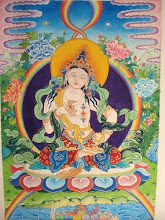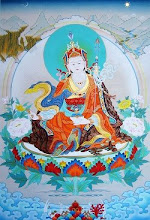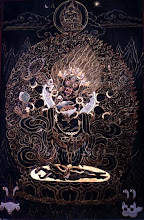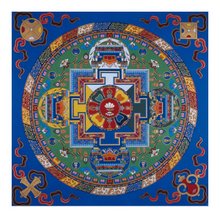 Ajahn Chah spoke simply for a simple audience. To illustrate his points, he spoke of fields, ponds, rivers, fish, frogs, dogs, plowing, planting, and harvesting. He used folk tales and parables. Here he speaks of how we are responsible for our own suffering:
Ajahn Chah spoke simply for a simple audience. To illustrate his points, he spoke of fields, ponds, rivers, fish, frogs, dogs, plowing, planting, and harvesting. He used folk tales and parables. Here he speaks of how we are responsible for our own suffering:"Really, someone who suffers when living alone is foolish. Someone who suffers when living with others is foolish. It's like chicken turds: if you carry them around by yourself, they stink. If you keep them when you're among others, they stink. You carry the rotten things with you."
On the futility of becoming overly preoccupied in affairs of the world, he reminds his audience of the beetle, scratching in the earth:
"It can scratch up a pile that's a lot bigger than itself, but it's still only a pile of dirt. If it works hard, it makes a deep hole in the ground, but it's only a hole in dirt. If a buffalo drops a load of dung there, it will be bigger than the beetle's pile of earth, but it still isn't anything that reaches to the sky. It's all dirt. Worldly accomplishments are like this. No matter how hard the beetles work, they're just involved in dirt, making holes and piles"
Translating the colloquialisms must have been challenging, but, as you can see from the above, Paul Breiter has done a magnificent job capturing Ajahn Chah's voice, making "Everything Arises, Everything Falls Away" a wonderful volume for even those who may have been practicing the dharma for many years.
For those new to Buddhism, this would be an amusing and enlightening introduction, not only because of the colorful language but also for the way in which Ajahn Chah reduces the message of Buddhism to a few easy-to-grasp concepts. He seemed to like reminding his audience that Buddhism was not all that difficult to understand, and he did this through the message of impermanence. As he remarks in a teaching on meditation:
"The way I practice medication is not very complicated - just this. This is what it all comes down to: `It's uncertain'. Everything meets at this point."
#
























0 comments:
Post a Comment